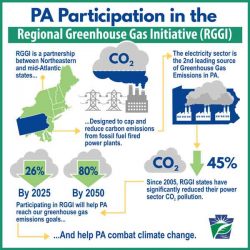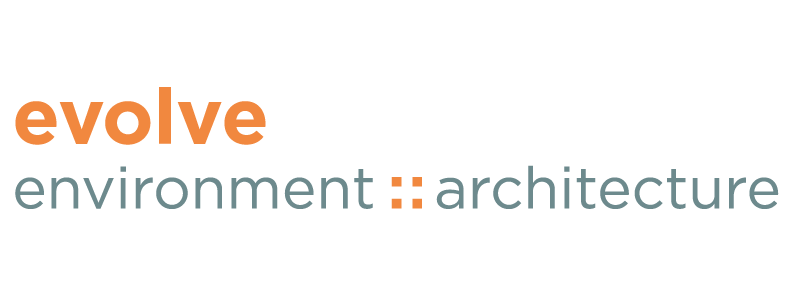Support for Regional Greenhouse Gas Initiative
 As we advance the vision of a low carbon future, Pennsylvania has an opportunity to take a significant step forward. I recently testified in favor of Pennsylvania joining to the Regional Greenhouse Gas Initiative (RGGI), which will establish a price on carbon, recognizing carbon’s social cost.
As we advance the vision of a low carbon future, Pennsylvania has an opportunity to take a significant step forward. I recently testified in favor of Pennsylvania joining to the Regional Greenhouse Gas Initiative (RGGI), which will establish a price on carbon, recognizing carbon’s social cost.
The following post is adapted from my testimony to the PA Environmental Quality Board:
Good afternoon and thank you for this opportunity to speak today. My name is Marc Mondor. I am an architect and am a Principal and Cofounder of evolveEA, a green building and sustainability consulting and design firm in Pittsburgh, Pennsylvania. I am also President of the American Institute of Architects Pennsylvania, representing 3,000 architect members from across the state. I also serve as Vice Chair of the Pennsylvania Climate Change Advisory Committee, currently at work on the 2021 Pennsylvania Climate Action Plan.
I am here today to speak in support of Pennsylvania’s seamless entry into the Regional Greenhouse Gas Initiative (RGGI). My firm evolveEA employs 17 people and has been in practice since 2004, working to integrate sustainable and triple bottom line solutions into the built environment, notably buildings.
Triple bottom line means that environment and equity considerations, as well as economic considerations, be taken into account into all decisions. The cheapest price is not always the best option if we account for indirect, adverse effects.
Pennsylvania has been a fossil fuel juggernaut for centuries as a legitimate part of our own folklore. We quantify what we value. Energy, if created by fossil fuels, creates carbon emissions. There is a triple bottom line cost to carbon, beyond the dollar cost of the energy. Carbon has a social cost, as we have seen in the results of climate change, such as cloudburst, flooding, infrastructure degradation, droughts, reduced crop yields, and the loss of our ski recreation areas. We are also seeing this in health outcomes related to air quality and, as our Mayor Peduto says, a less desirable destination for knowledge workers.
The Regional Greenhouse Gas Initiative will place a price on carbon. RGGI is not a tax, it’s an impact fee that we should have been paying all along, which will incentivize more efficient energy production. Regarding my firm evolve’s work, this will help validate and provide a market signal for the energy efficiency consulting and design work that we do. According to E2.org, energy efficiency and renewable energy jobs are the reliably fastest growing employment sector in Pennsylvania, growing at a rate of 6 to 8% per year, year over year. Meanwhile, gas jobs are stagnant and coal jobs are declining. If we want to talk about job creation, which is nectar for any politician, then we need to embrace this concept. What’s more is that these green jobs are also healthier for the workers who perform them, working above ground and with smaller tools.
The benefit of RGGI is that it’s a cap and invest program. The hundreds of millions of dollars projected as annual revenue can and should be used for energy efficiency and renewable energy programs and incentives. Do we remember the Pennsylvania Sunshine Harvest and Growing Greener grants and the many programs of that sort from only a decade ago? These had a huge impact, leveraging efforts with a multifold multiplier, establishing an identity, creating jobs, and reducing energy use.
This revenue can and should also be spent on education programs. Pennsylvanians have been told that energy cost is a zero sum game, and that RGGI will only make energy more expensive for us. The reality is that this money can be used to create low income and small business energy efficiency programs, at a time when so many could use this relief. Efficiency and renewables programs can be created that will lead to economies of scale and predictability in the near term, which then will attract investment from energy and renewables companies, which will then create more green jobs.
We need to move forward into a progressive energy economy. When I hear nearly every municipality and corporation talking about a zero carbon and all-electric future, I want for Pennsylvania to not only keep up; I want for Pennsylvania to lead it.
We have been world leaders in fossil fuel innovation and production for two centuries. With the foresight and investment that joining RGGI will enable, we can proactively provide energy leadership and be globally competitive in this century as well. Thank you.
Sincerely,
Marc Mondor
The comment period for deciding PA’s involvement in RGGI remains open until January 14, 2021. If you have a perspective to share, feel free to submit your comments according to the instructions on the PA DEP website.


